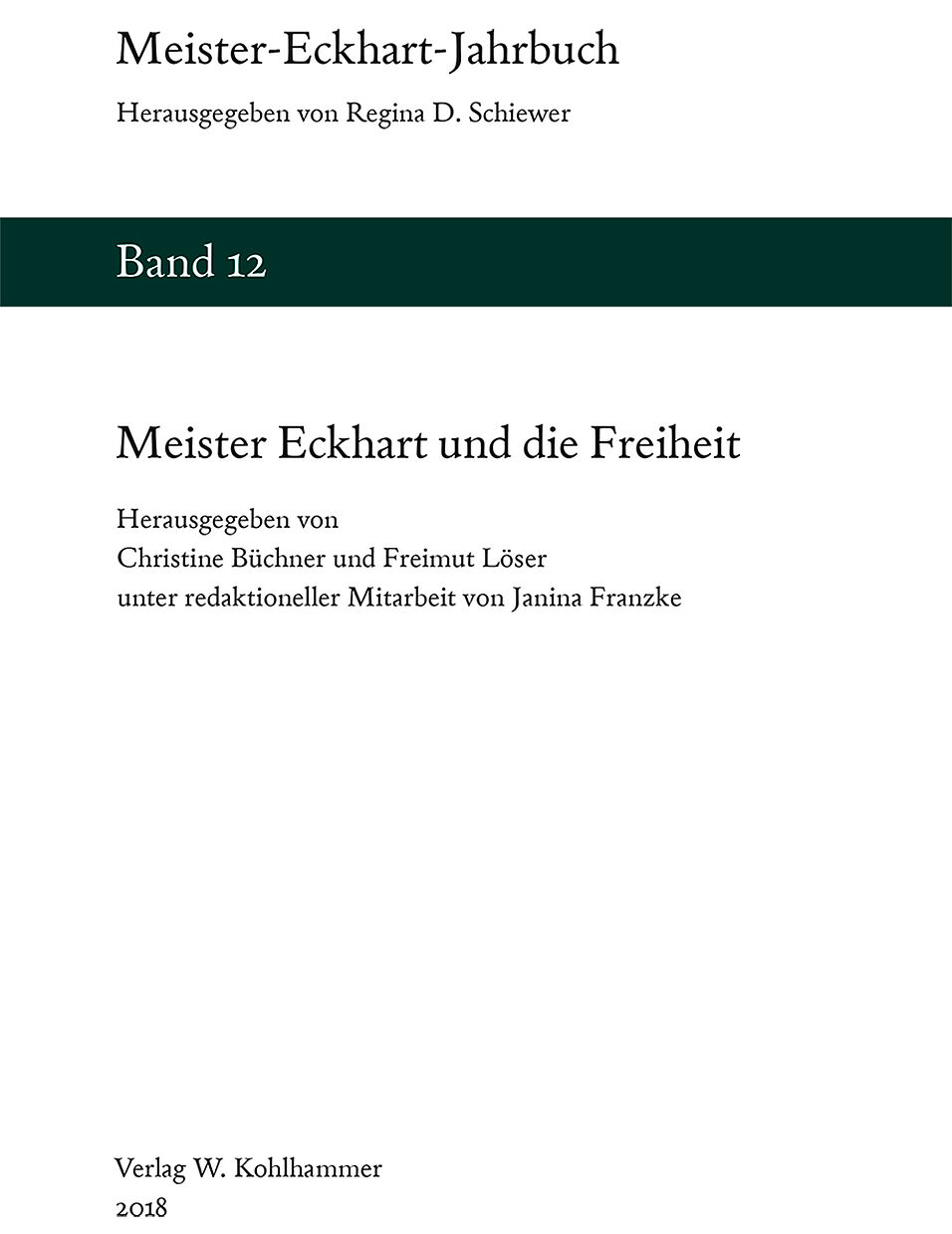Beitrag von Martina Roesner:
Im Netz der Wahrheit. Meister Eckharts an-archisches Textverständnis als hermeneutisches Grundprinzip seiner Schriftauslegung (S. 225-245).
Link zur Meister-Eckhart-Gesellschaft (Interdisziplinäre wissenschaftliche Gesellschaft zur Erforschung und Darstellung von Leben und Werk Meister Eckharts)

